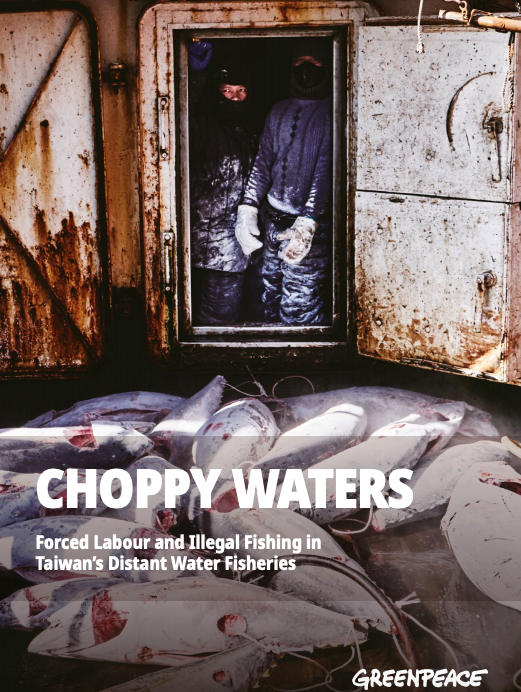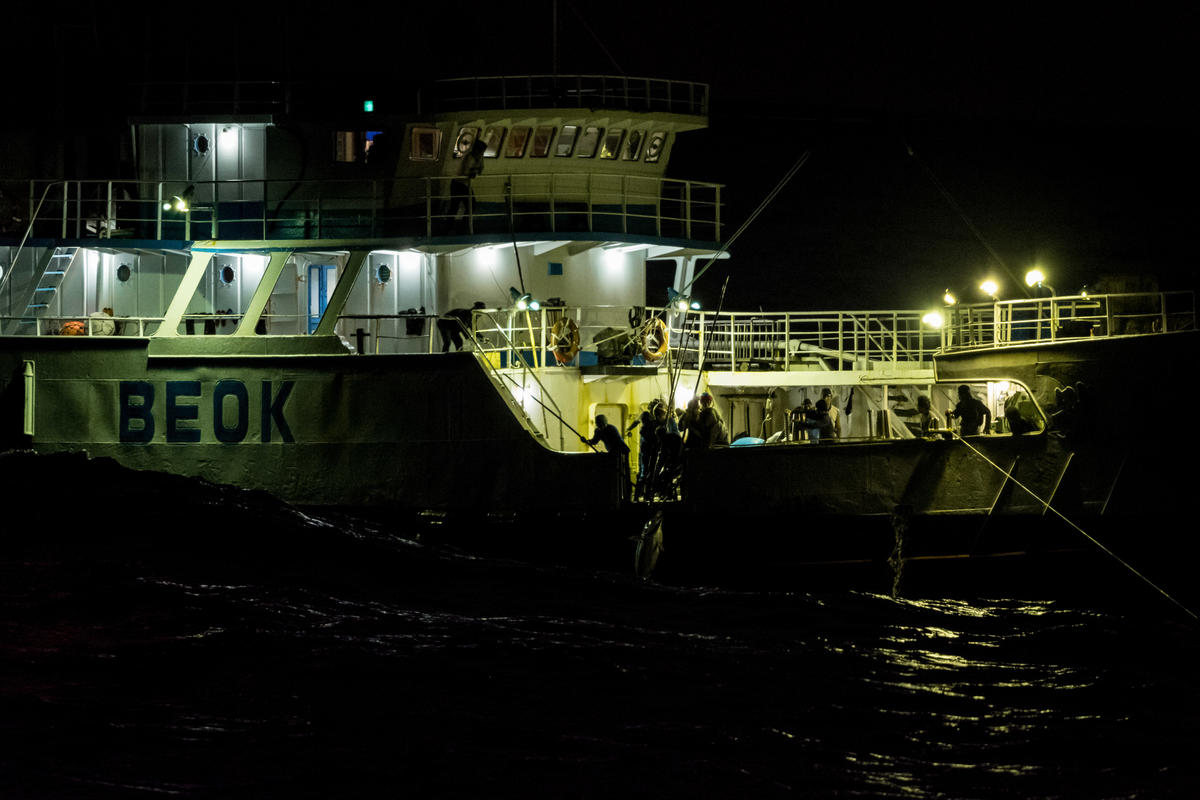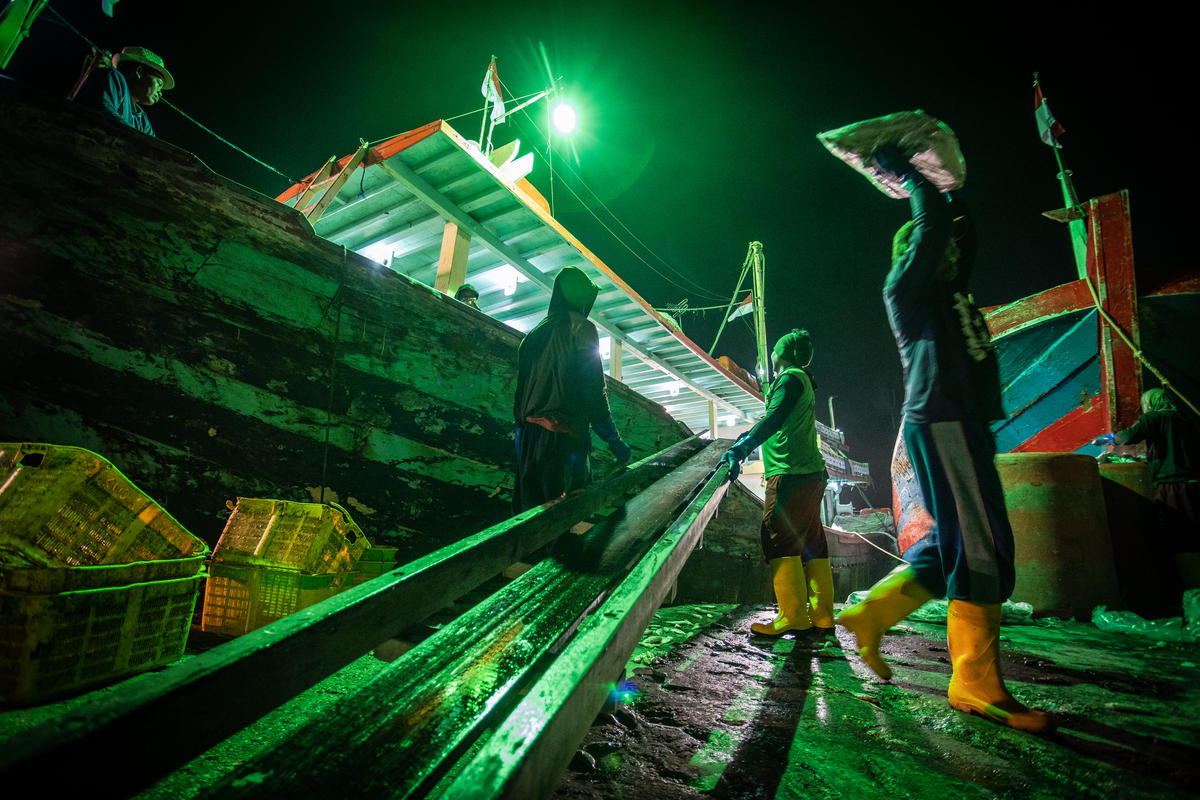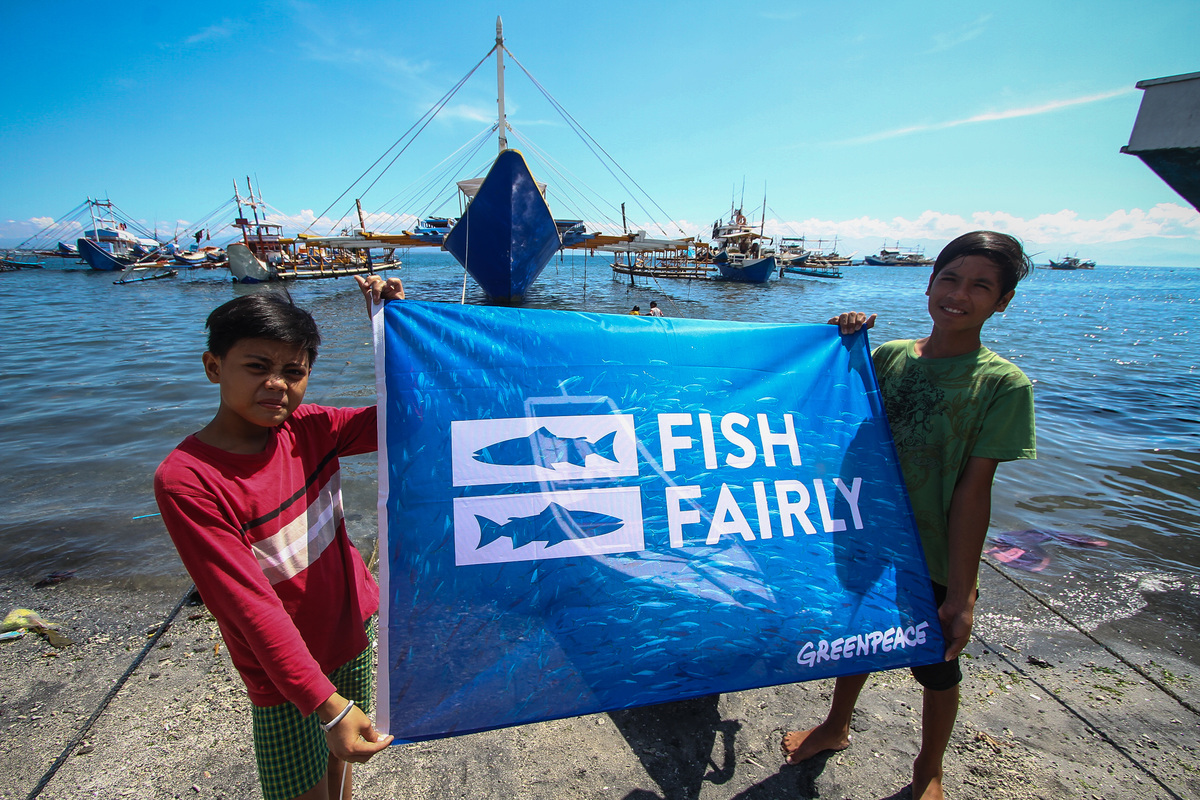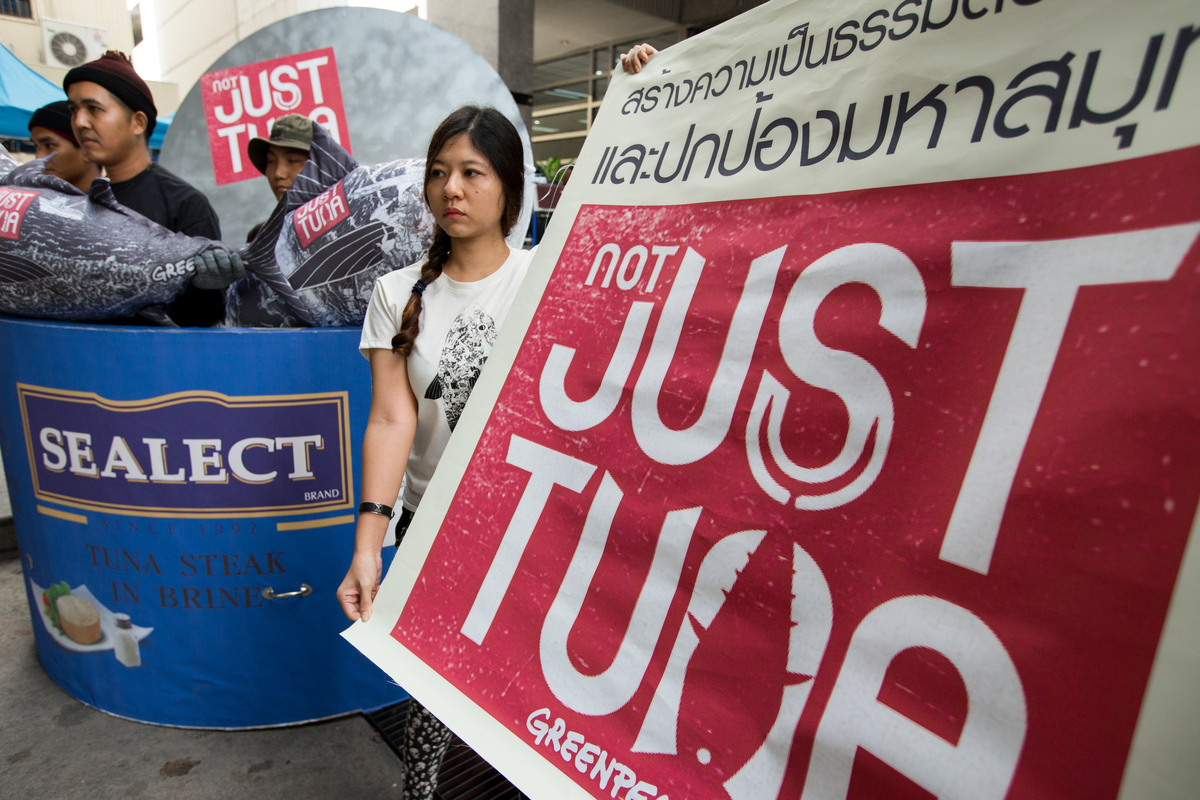All articles
-
Choppy Waters: Forced Labour and Illegal Fishing in Taiwan’s Distant Water Fisheries
This report is based on a 2019 investigation conducted by Greenpeace East Asia, involving interviews with migrant fishers from three fishing vessels that were either flagged or linked to Taiwan. We found that IUU fishing and forced labour, allegedly, still continue to happen aboard Taiwanese fishing vessels operating in the Atlantic Ocean.
-
Taiwan’s major global tuna supplier shows “blind spots” to illegal fishing practices and modern slavery
Labour and human rights abuses continue to exist in Taiwan’s distant water fishing fleets, with one major global seafood trader showing its “blind spots” towards practices such as shark finning, forced labour, and illegal transhipment.[1] According to the new Greenpeace East Asia investigation, migrant fishers, who worked onboard vessels that were either flagged or linked…
-
Five reasons modern slavery at sea is still possible in 2019
In a new report, “Seabound: The Journey to Modern Slavery on the High Seas”, Greenpeace Southeast Asia spoke to many migrant fishers about their experiences in order to present a snapshot of the living and working conditions onboard distant water fishing (DWF) vessels, according to the fishers themselves.
-
Greenpeace: Only five out of 23 tuna canneries in Southeast Asia make the grade
Greenpeace Southeast Asia today released its latest tuna cannery ranking evaluating 23 canneries and brands from the Philippines, Thailand and Indonesia based on their policies on sustainability, transparency and equitability.
-
From Sea to Can: 2018 Southeast Asia Canned Tuna Ranking Report
Greenpeace is running an international campaign to steer the global tuna industry towards more environmentally and socially responsible sourcing.
-
Thai Union commits to more sustainable, socially-responsible seafood
BANGKOK – Thai Union Group PCL has committed to measures that will tackle illegal fishing and overfishing, as well as improve the livelihoods of hundreds of thousands of workers throughout the company’s supply chains.


